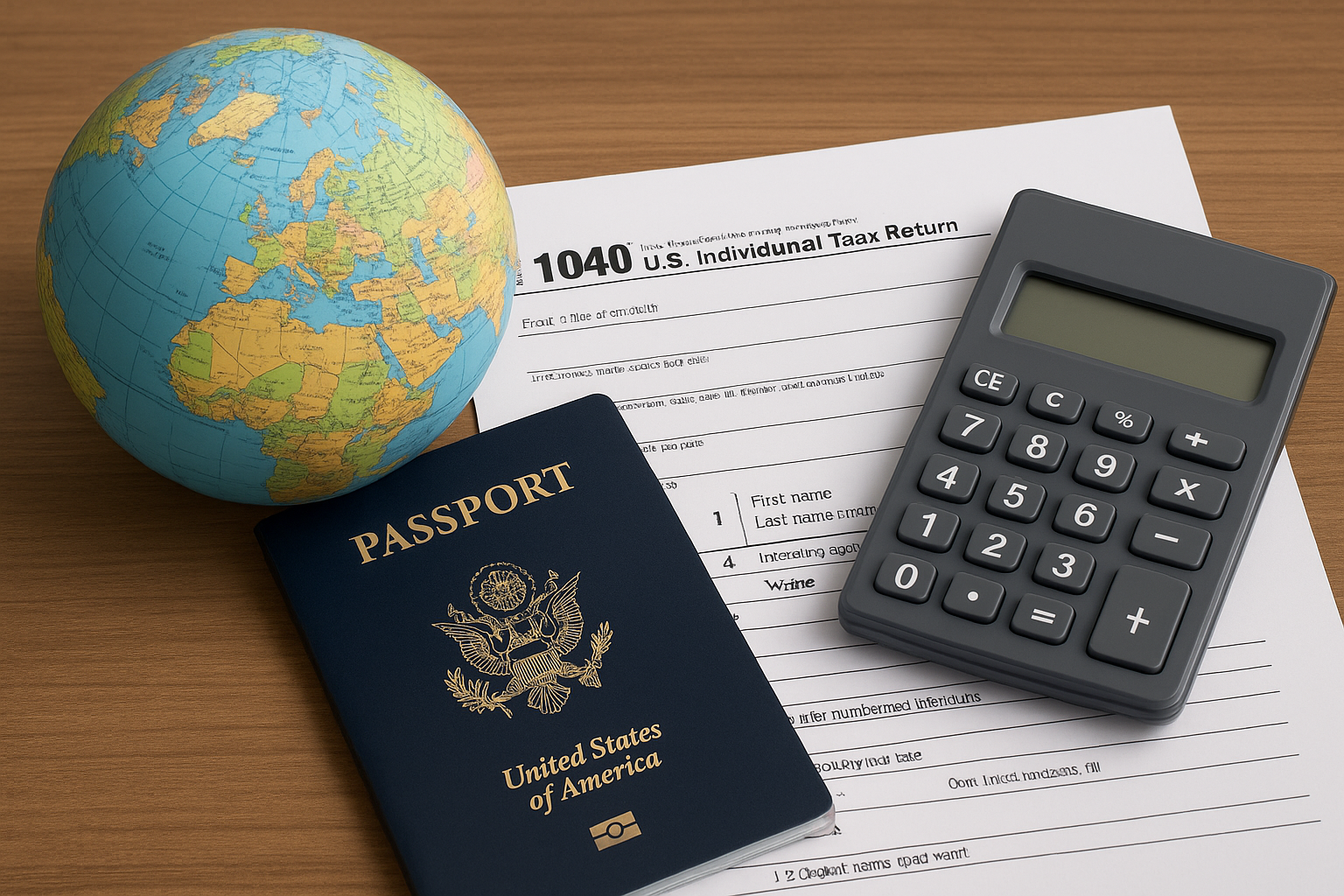
If you're an American citizen or Green Card holder abroad, you're still responsible for paying U.S. taxes. Unlike the majority of nations, the United States taxes its citizens and permanent residents on the basis of citizenship, not residency.
Which means even if you have not stepped foot in the U.S. for decades, you might still have to file yearly tax returns — and maybe even pay taxes — to the IRS. And it gets even more complicated from there.
Why U.S. Expats Still Owe U.S. Taxes
The U.S. is one of only two nations on Earth (the other is Eritrea) that has citizenship-based taxation. Which means
If you possess a U.S. passport, you're required to submit an annual tax return.
If you have a Green Card, you're treated as a U.S. tax resident — even if you're abroad for the rest of your life.
You might also need to disclose foreign bank accounts, pensions, investments, and business income.
Not filing — or filing incorrectly — can result in penalties, audits, or even threaten your immigration status.
Tax Traps for U.S. Expats
Here's where expat tax business usually gets tricky:
1. Double Taxation
Unless you plan ahead, you could find yourself paying tax both in your host nation and the United States. Tax treaties and credits may assist, but they don't happen automatically.
2. Foreign Bank Account Reporting (FBAR)
If your aggregate foreign account balances are more than $10,000 at any time during the year, you're required to file an FBAR. Not doing so can lead to extremely high fines.
3. FATCA Compliance
Both individuals and foreign banks have to report U.S. account holders and assets under the Foreign Account Tax Compliance Act. Hiding money abroad — even by accident — won't keep you secret from the IRS.
4. Passive Income Rules
Foreign businesses, pensions, or mutual funds can be subjected to intricate rules such as PFIC reporting that have stiff tax treatment and paperwork.
What If You Don't File?
Most expats mistakenly believe that since they don't receive income in the U.S., they don't need to file. That's incorrect. Failure to file can lead to:
Penalties and interest on unpaid taxes
Loss of eligibility for passport renewal in extreme cases
Difficulty with Green Card renewals or reentry into the U.S.
If you’re behind, the IRS does offer a way to catch up without penalties through the Streamlined Filing Compliance Procedures — but this option won’t be around forever.
Need Help? Talk to Expat US Tax
This is where experts come in. Expat US Tax is a firm that specializes exclusively in U.S. tax issues for expats and Green Card holders.
They help with:
Filing U.S. tax returns from abroad
FBAR and FATCA compliance
Claiming foreign tax exclusions and credits
Late filing or IRS amnesty programs
Green Card tax exit strategies
They know the real-world issues expats deal with — from foreign income and investments to multi-country tax treaties — and they simplify the process.
Visit Expat US Tax for more information or to schedule a FREE consultation.
Final Thoughts
Living overseas is challenging enough — your taxes don't have to be. If you are a U.S. citizen or Green Card holder, don't think you're off the hook for paying taxes just because you're no longer in the U.S.
With proper planning and expert assistance, you can remain compliant — and steer clear of costly errors later on.






